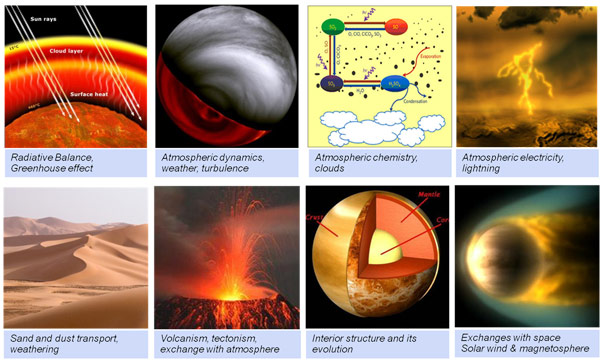WHY?
"Comparison of basic geophysical processes on different planets – from volcanism and tectonics, to atmospheric circulation and chemistry, to solar wind interaction and atmospheric escape – improves our fundamental understanding of how these processes work."

The European Space Agency's Venus Express is the only spacecraft at Venus – prior to Venus Express, the last Venus orbiter was launched in 1989 – so European scientists now lead the world in Venus research (in marked contrast to the status for most other planets). This project will (a) enhance the legacy of Venus Express data through cross-validation with complementary ground-based telescopic observations; (b) position European ground-based researchers to continue to lead Venus research after the end of the Venus Express mission, and (c) strengthen the position of European researchers in the emerging field of comparative planetology.
The participants in this project will investigate in detail the dynamics and composition of the middle and lower atmosphere of Venus by combining data from Venus Express instruments (VIRTIS, VMC) with simultaneous data acquired from several ground-based telescope facilities. The project will perform coordinated observations to provide a detailed analysis of dynamical and chemical couplings between different levels of the atmosphere that are probed simultaneously by different instruments. It is time critical in the context of (1) the extension of the Venus Express (VEx) mission only until the end of 2014; (2) the expertise and coordination in wind and trace species measurements developed in our institutions, currently unique in the world; (3) the availability of new techniques of ground-based investigation of Venus' atmosphere, which will benefit from coordination and cross-calibration with in-orbit Venus Express payload instruments and beyond.


